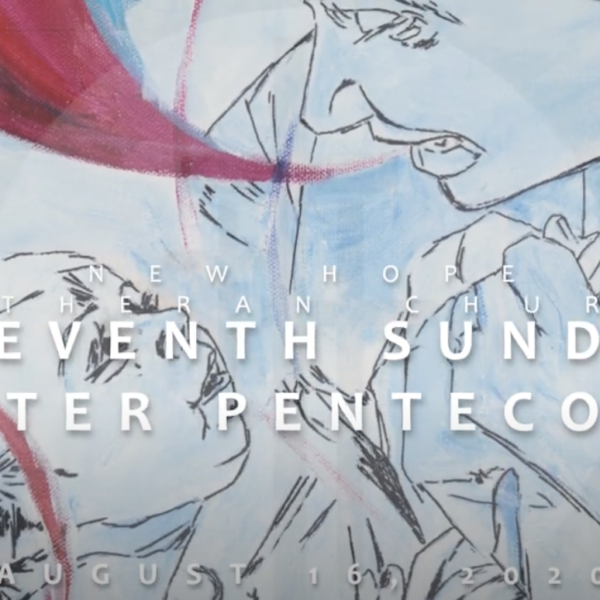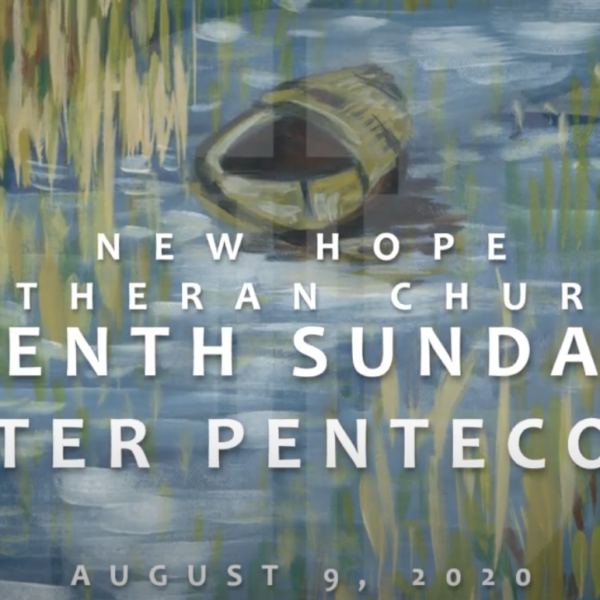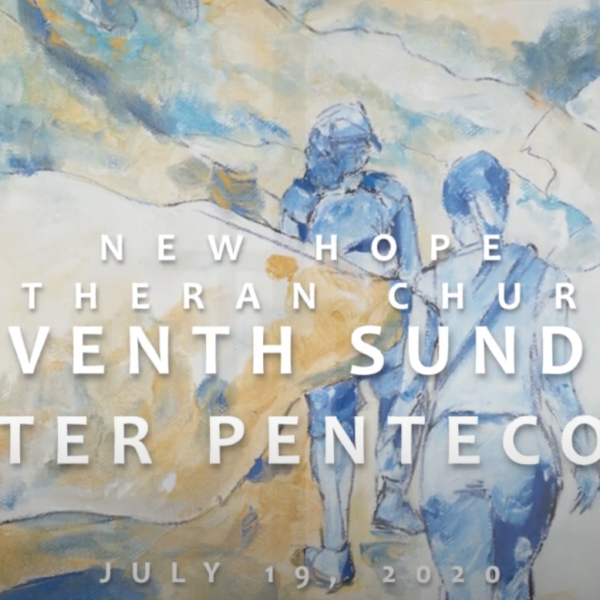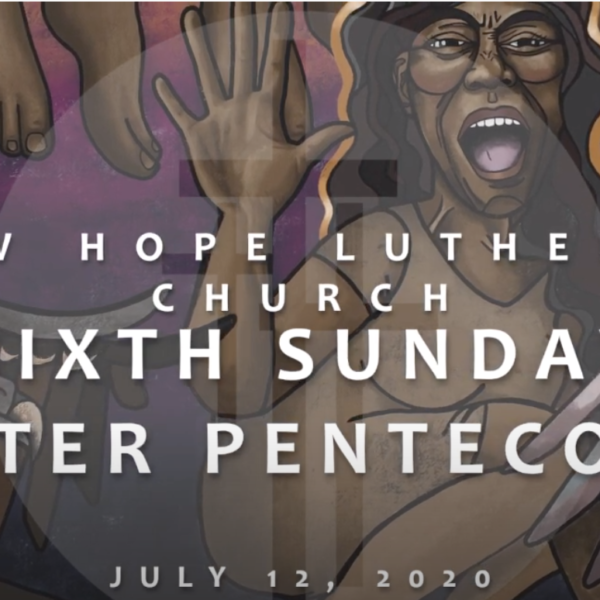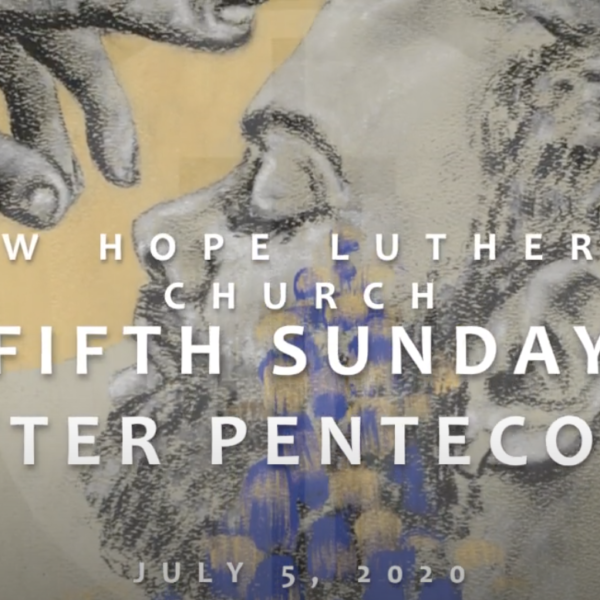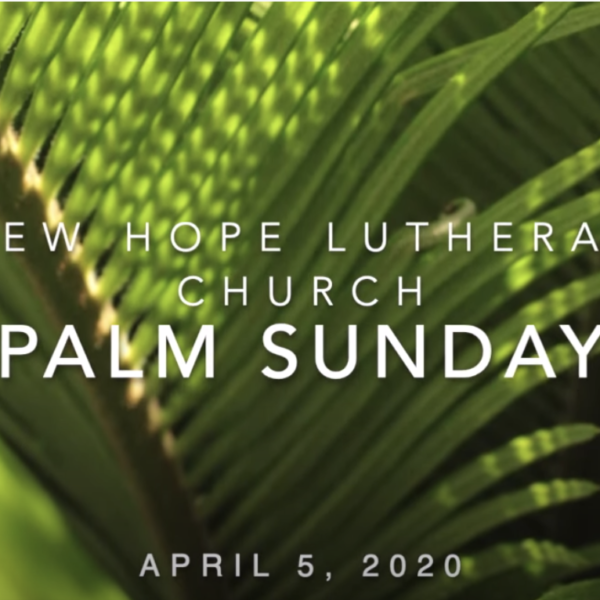Eleventh Sunday after Pentecost 2020
Matthew 15:10-28
10 Jesus called the crowd to him and said to them, “Listen and understand: 11 it is not what goes into the mouth that defiles a person, but it is what comes out of the mouth that defiles.” 12 Then the disciples approached and said to him, “Do you know that the Pharisees took offense when they heard what you said?” 13 Jesus answered, “Every plant that God has not planted will be uprooted.
14 Let them alone; they are blind guides of the blind. And if one blind person guides another, both will fall into a pit.” 15 But Peter said to Jesus, “Explain this parable to us.” 16 Then Jesus said, “Are you also still without understanding? 17 Do you not see that whatever goes into the mouth enters the stomach, and goes out into the sewer? 18 But what comes out of the mouth proceeds from the heart, and this is what defiles. 19 For out of the heart come evil intentions, murder, adultery, fornication, theft, false witness, slander. 20 These are what defile a person, but to eat with unwashed hands does not defile.”
21 Then Jesus left that place and went away to the district of Tyre and Sidon. 22 Just then a Canaanite woman from that region came out and started shouting, “Have mercy on me, Lord, Son of David; my daughter is tormented by a demon.” 23 But Jesus did not answer her at all. And his disciples came and urged him, saying, “Send her away, for she keeps shouting after us.” 24 Jesus answered her, “I was sent only to the lost sheep of the house of Israel.” 25 But she came and knelt before him, saying, “Lord, help me.” 26 Jesus answered her, “It is not fair to take the children’s food and throw it to the dogs.” 27 The woman said, “Yes, Lord, yet even the dogs eat the crumbs that fall from their masters’ table.” 28 Then Jesus answered her, “Woman, great is your faith! Let it be done for you as you wish.” And her daughter was healed instantly.
—————
Please pray with me this morning, church:
Healing God,
We are needy people.
Above all, we need measures of your love and care.
Give to us, even the crumbs…
All that you have promised.
That we might share even that with a starving world.
Amen.
—————
You’ve heard me mention before from this pulpit that the first time I ever wore my clerical collar was at a rally for marriage equality in downtown Chicago in 2013. It was a strange feeling, putting on a piece of clothing that held such importance for me for the first time while getting ready to put myself as an ally into a place and during a time that had such importance for so many people that I love so much. The whole moment had a heightened feeling of consequence. It was as if I understood in a much deeper way the weight and the heaviness and the significance my words and my actions have when I wear this collar.
I put my shirt on carefully and purposefully that morning.
I still take a little bit extra time and a little extra care every time I button up my clerical and put my collar on. I do so even prayerfully.
I’ve also mentioned before from this pulpit how I grew to really dislike parades. We grew up watching the big Thanksgiving Day parades in New York, but as a Texas band kid who had to march 4th of July parades in 100° heat and bowl game parades in college, I find very little redeeming about parades as a participant. Don’t get me wrong, parades are still nice to watch, I just don’t love marching in them. Although, I will admit that my experiences are fairly singular, so please don’t let my dislike of them sour you on parades if they’re your cup of tea. They’re just not mine.
So it’s a bit of surprise, then, that I would wear that same shirt with the same collar a few months later, the first weekend of June, at Chicago’s annual Pride Parade. Placing myself in a position to march alongside my colleagues and beloved friends, to do the thing that I had grown to greatly dislike. But also again putting my self and my body in a position of ally-ship with those friends and colleagues of mine that I love so very much and care for so deeply.
Ultimately, my love of my people, I hold dear far outweighed whatever residual disdain I may have still been carrying with me about parades.
Ultimately…it was love that won out.
It was important to me to demonstrate that I know and recognize that the church has done a tremendous amount of harm to the LGBTQIA2+ community, and showing up to march in Chicago’s Pride Parade as a person who, at that time was studying and learning to be a pastor, I was committing myself to apologize for the harm done by people and institutions that this collar represents, and I was demonstrating I would not be that kind of leader, nor would I lead that kind of church.
It was another holy moment for me. One filled with the same kind of gravitas and consequence I feel every time I wear my collar.
But then something else happened…
We started marching. The parade started.
And all of a sudden, I was swept up in pure joy and unashamed and unmeasured happiness and light and beauty and whimsy.
The energy was pulsing and the music was blaring, and everyone was caught up in this giant, magnificent, jubilant celebration.
It was completely beyond my ability to describe.
Pure joy.
And folks will tell you, and I can confirm in my own experiences, that every. single. Pride Parade everywhere is that same expression of exuberant and beautiful joy.
And what folks who know will also tell you…is that the first Pride didn’t have all the blaring music and bubbles and streamers and jubilation.
The first Pride was, quite literally, a riot.
On June 28, 1969, at the Stonewall Inn in New York City, a violent clash erupted between an excessively aggressive police force and LGBTQIA2+ individuals after an unannounced police raid went badly wrong and violence escalated between the police and the bar patrons.
And the very next year, 1970, the first Pride Parades took place in New York, Los Angeles, and San Francisco.
Out of something so painful…out of so much hurt and grief…something beautiful was able to grow and flourish.
That’s a long lead-in, but our 2 readings from Genesis and Matthew both highlight what can happen when space is made for beauty to grow, especially from places of hurt and pain and ugliness and grief.
Sarah and Abraham were old, y’all. Like, much older than anyone in our congregation. Maybe you personally know someone who’s passed the century-mark. The point is, they were way past what would be considered to be child-bearing age. And we know that Sarah herself, at least up until this point, hasn’t been able to have children. That’s why we have Abraham and Hagar, and Hagar gives birth to Ishmael.
So Sarah’s gone her whole life up to this point, carrying around this grief and this pain of not being able to have children. And you need to know that’s a deeply hurtful thing to weigh on your soul, especially for women. 1 in 8 couples in the US struggle with infertility. And that number is growing rapidly in recent years. It’s not uncommon at all. I know it’s a hurtful thing, because we, too, struggled with getting pregnant. (But we talked to our doctors, got a referral and some tests done, tried a few different things, and now we have a beautiful 1-year-old who’s…mostly…a joy to be around…he’s much more pleasant when he sleeps as long as he should…truthfully we’re all more pleasant when we get the sleep we need…) And look, I don’t want to gloss over it either. We sought help and we were lucky and we were very fortunate that it worked for us. There are some for whom it doesn’t work.
But what I found is that certainly in our joy, but most especially and most poignantly in our struggle, that God was there.
That’s probably the greatest gift of Lutheran understanding to our human condition—that God is most especially present in our times of struggle and hurt and pain—because God, in Christ, was crucified on a Roman cross. God died…so that we would be assured beyond a shadow of a doubt that God knows…God has felt…God has experienced…the deepest and the most painful parts of us humans.
So, it’s into the midst of this hurt and grief that Sarah’s carried around, and honestly, probably mostly reconciled with at this stage in her life…here comes God into the midst of this, bringing up old wounds and deep hurts, promising children. And so it’s no wonder Sarah chuckles to herself, honestly, it was probably more of a…*ppfffttt*…a dismissal of the whole thing. And honestly, if it were me, it’d probably be mixed with a little bit of anger at God for digging around in a wound that very well may have been scarred over at that point.
But the promise is made nonetheless. And later Sarah does give birth to Isaac.
Out of something so painful…out of so much hurt and grief…something beautiful was able to grow and flourish.
In our gospel reading, maybe you struggled with the words you heard come out of Jesus’ mouth. “I was sent only to the lost sheep of the house of Israel…it is not good or fair to take food from the children and give it to the dogs.” Did…did Jesus just call this woman a dog…?
Well…yes…truthfully… At least that what’s recorded as having been said, and the original Greek bears this out, so we’re not even saved there by a textual interpretation.
It’s important to know that, particularly in the Gospel according to Matthew, Jesus very explicitly understands his ministry as singularly for the Jewish people. The gospel of Matthew was written to a predominantly Jewish community, so this was seen as good news. Jesus was a Rabbi, he never stopped being Jewish. “Christianity” wasn’t even a thing until 70 years after Jesus was crucified and raised. The Jesus movement was a reform movement within Judaism. Even Paul’s version of being a Christ-follower was understood as being within the constructs of Judaism. And it wasn’t until about the year 100, that Christ-believers in Antioch started calling themselves “Christians.”
Which is to say, that this Gentile woman from Canaan would have been outside the promises of God anyway. And if you remember your biblical history, you’ll remember that God gave the land of Canaan to the Israelites, and allowed the Israelites to conquer the Canaanites, and frankly, to murder them. And so the Israelites justified their horrible actions by saying it was God who approved of their plan, so how could it be wrong…but if you were a Canaanite, I bet you’d be pretty skeptical…
So when this Canaanite woman hears Jesus, a Jewish Rabbi, calling her a dog, you can bet it ticked her off. But then she counters with this beautifully back-handed line… ”Yes, Lord…but even the dogs eat the crumbs that fall from the master’s table…”
Give me a crumb, Jesus. Just a morsel.
My daughter is tormented…give us just a measure of what we’ve heard you can do.
And in this moment, Jesus is changed.
God changes God’s mind.
God, in Jesus, is human, after all…and as humans, we change. The Rev. Dr. Wil Gafney says, “To be human is to learn and grow and change, to open up our hearts and minds, expand our beliefs and relinquish our biases.” Jesus shares this with us.
Give me a crumb, Jesus. Just a morsel.
We’re not celebrating communion every Sunday during this pandemic, but we remember what a crumb, what a morsel, feels like in our hands. We know how sustaining, how healing, a crumb can be.
Jesus proves his own words in this gospel story, “It’s not what goes into the mouth that defiles a person, but what comes out of one’s mouth that defiles.” We would do well, I think, to watch what we say more carefully. Our tongues and our ways of speaking to one another get us in a lot of trouble.
And through her persistence, this woman’s daughter is released from her torment.
Out of something so painful…out of so much hurt and grief…something beautiful was able to grow and flourish.
In our Council Meeting this week, for our Devotional Time, I asked our Council to talk about when they encountered moments of joy or surprise or blessing during this time of pandemic, in recent months and weeks. What was interesting is that everyone was able to name where they had seen beauty springing up in the midst of so much uncertainty and loss.
There’s no shortage of grief and pain, hurt and loss, during this pandemic.
But I wonder where you’ve experienced joy and beauty.
Can you point to a time? Can you point to maybe a handful of instances?
We don’t always have eyes to see beauty and joy in the moment.
But what if we could learn how to be more attentive to it?
What if we could strive to see the world through those eyes of blessing, noticing even the crumbs and morsels of joy and happiness?
As we heard a couple of weeks ago, it may not seem like much more than a few crumbs of bread or some tiny little morsels of fish…but we heard what God can do with those…
Where have you seen beauty, church?
Where have you experienced joy in this struggle?
It’s there…even if it’s just the crumbs…

